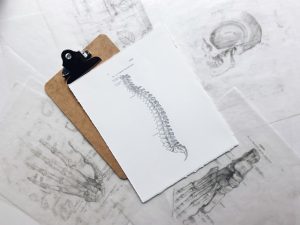Guest Blog: What You Need to Know About a Hemilaminectomy Procedure
This procedure is one of the safest, most minimally invasive treatments for a herniated disc. A Hemilaminectomy procedure is performed on patients with lumbar spinal stenosis. This diagnosis can come from several issues, such as Arthritis in the spine, which all result in pinched nerves. This procedure is perfect for someone suffering from a condition that occurs when the nerves are being pinched, resulting in severe pain running down the legs and into the feet. So here is what you need to know about the Hemilaminectomy procedure.
What is a Hemilaminectomy Procedure?
A hemilaminectomy is a surgical procedure performed on patients afflicted with lumbar spinal stenosis. This type of spine disorder occurs when the spinal column disc has been compressed over time and onward, which causes ongoing severe pain and discomfort for the patient.
The lumbar spinal discs are cushions of cartilage that sit between vertebrae. This condition occurs because of the pressure that builds up on these discs over time, which causes the pain to be extreme.
How is the Hemilaminectomy Procedure Performed?
This surgery is performed through a small incision on the back. Then special retractors are used to push apart the muscles in the mid-section of the back. This is a much more delicate surgery that must be performed through a small incision.
Because of this, it is usually performed on anyone under general or spinal anesthesia. As long as there are no problems with the patient, they should be able to wake up from the surgery in a few hours and go home after a day or two. This procedure is the least invasive option for patients who have chronic problems with their back.
When You Should Consider a Hemilaminectomy Procedure
This operation should be performed when symptoms of chronic pain are present. Some of these issues can occur from a pinched nerve that travels from the back down to the legs. It is also a procedure that is an option when there is a pressing issue with any of the pinched nerve issues.
Sometimes, this spinal disc can become herniated, which means that the pressure has become too much for it to handle and causes pressure on nearby nerves or bones. This is one of the most common conditions seen in lumbar spinal stenosis.
Sometimes, you can freeze off this spinal disc with a surgical fix by freezing it with an instrument, but Hemilaminectomy is the ultimate fix for this condition.
How Long Does Recovering Take After the Procedure?
Patients who undergo the Hemilaminectomy procedure will benefit immediately from this operation. After the surgery, most people have a day of recovery time before they are allowed to go home.
In most cases, patients return and participate in their normal activities within a few weeks of their Hemilaminectomy surgery. This general timeline is important because it provides comfort to the patient, knowing what they should expect when they decide to undergo this type of surgery.
The Risks of a Hemilaminectomy Procedure
As with any surgery, some risks come with it. Risks can include internal and external problems that may arise during the procedure. Some of these risks can include:
- Blood clots in the legs
- Bleeding
- Nerve damage
- Infection
- Spinal Fluid Leakage
- Allergic reaction to the anesthesia
In addition to this list, some risks are more common after a Hemilaminectomy procedure. This is because it is a less invasive surgery involving limited incisions in the patient’s back. After several months into the recovery process, it is possible at some point for the herniated disc to be recurring to a small degree.
This is something that most patients don’t have to worry about after a few months of recovery, but some patients do deal with a recurrent disc for the rest of their life. In such cases, it is important to get checked regularly.
Conclusion
The Hemilaminectomy procedure has become the preferred choice for most doctors regarding a full spine fix. This is because this procedure involves less invasive incisions, resulting in quicker recovery and improved patient comfort. This type of surgery is an option that is best for patients with debilitating conditions that affect their daily lives.

